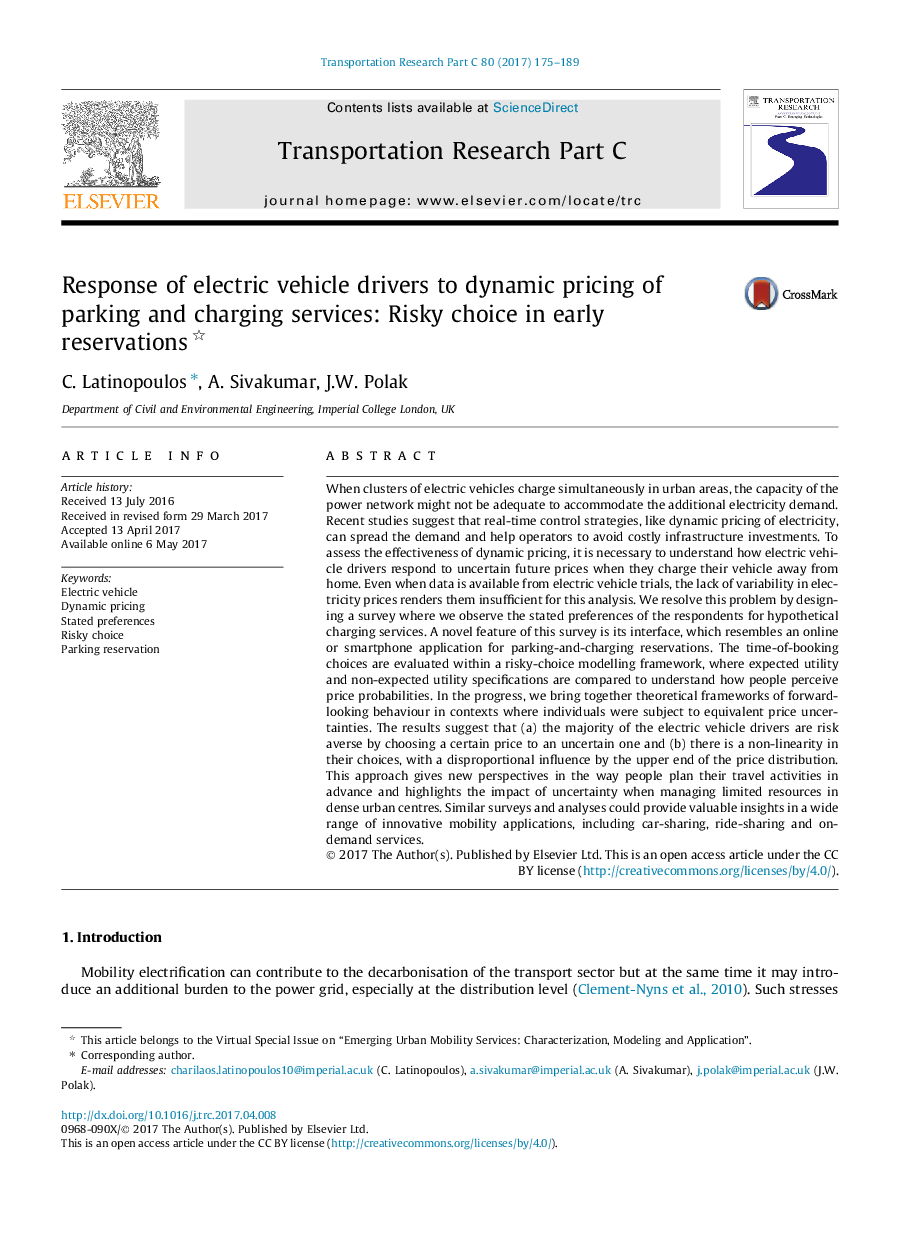| Article ID | Journal | Published Year | Pages | File Type |
|---|---|---|---|---|
| 4968461 | Transportation Research Part C: Emerging Technologies | 2017 | 15 Pages |
â¢Dynamic pricing for coordination of electric vehicles is increasingly attracting attention.â¢There is need to examine how electric vehicle drivers respond to these pricing regimes.â¢A detailed analysis using stated preferences for out-of-home charging is undertaken.â¢We find that respondents are overall risk-averse when making booking decisions.â¢We find a disproportionate influence of large price increases.
When clusters of electric vehicles charge simultaneously in urban areas, the capacity of the power network might not be adequate to accommodate the additional electricity demand. Recent studies suggest that real-time control strategies, like dynamic pricing of electricity, can spread the demand and help operators to avoid costly infrastructure investments. To assess the effectiveness of dynamic pricing, it is necessary to understand how electric vehicle drivers respond to uncertain future prices when they charge their vehicle away from home. Even when data is available from electric vehicle trials, the lack of variability in electricity prices renders them insufficient for this analysis. We resolve this problem by designing a survey where we observe the stated preferences of the respondents for hypothetical charging services. A novel feature of this survey is its interface, which resembles an online or smartphone application for parking-and-charging reservations. The time-of-booking choices are evaluated within a risky-choice modelling framework, where expected utility and non-expected utility specifications are compared to understand how people perceive price probabilities. In the progress, we bring together theoretical frameworks of forward-looking behaviour in contexts where individuals were subject to equivalent price uncertainties. The results suggest that (a) the majority of the electric vehicle drivers are risk averse by choosing a certain price to an uncertain one and (b) there is a non-linearity in their choices, with a disproportional influence by the upper end of the price distribution. This approach gives new perspectives in the way people plan their travel activities in advance and highlights the impact of uncertainty when managing limited resources in dense urban centres. Similar surveys and analyses could provide valuable insights in a wide range of innovative mobility applications, including car-sharing, ride-sharing and on-demand services.
